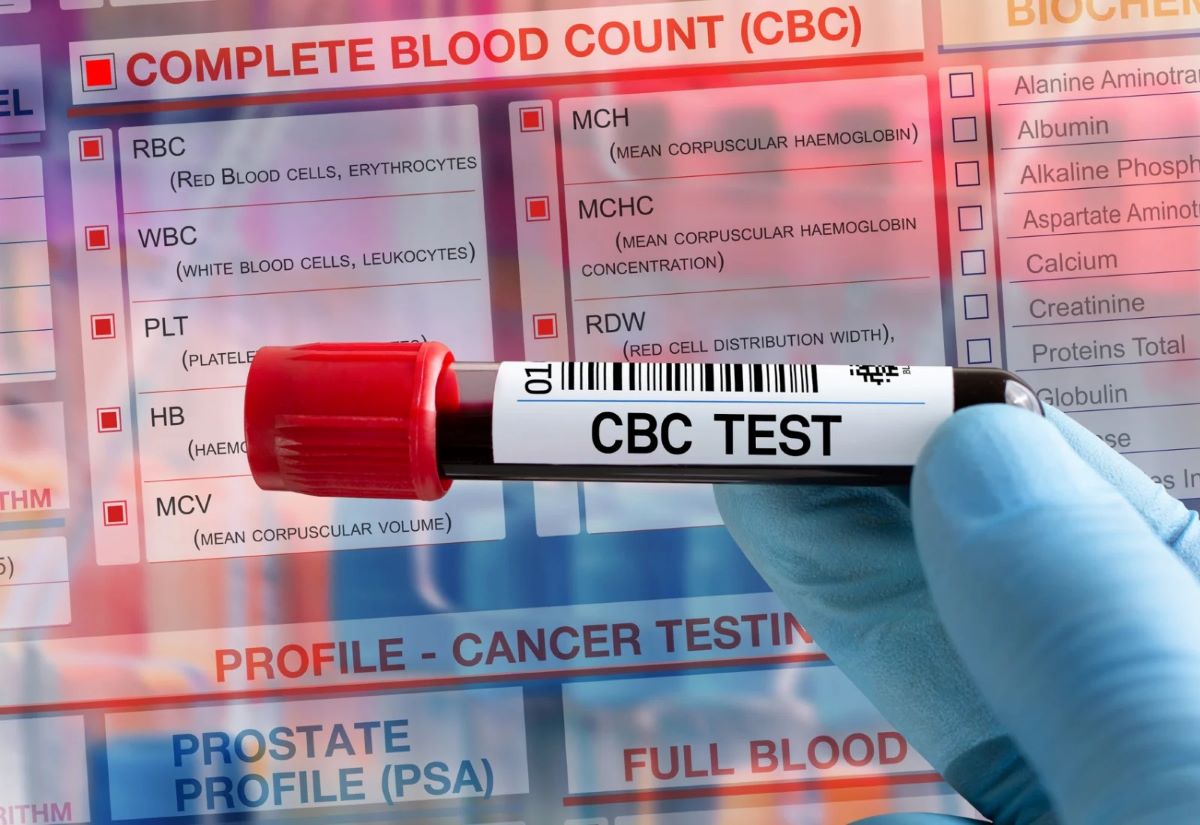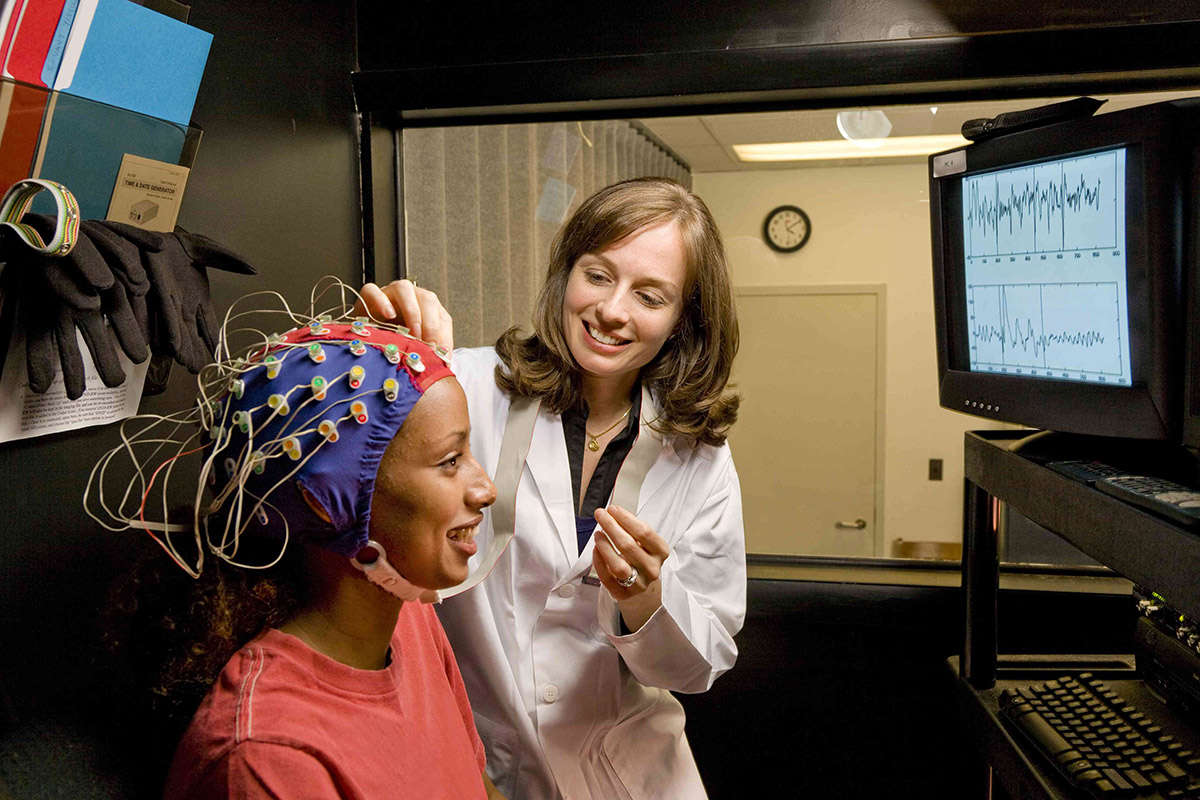Home>Finance>How Much Does An Autism Evaluation Cost Without Insurance?


Finance
How Much Does An Autism Evaluation Cost Without Insurance?
Published: November 14, 2023
Learn the average cost of autism evaluation without insurance and explore finance options to help cover the expenses. Find out how to navigate the financial aspect of getting an autism diagnosis.
(Many of the links in this article redirect to a specific reviewed product. Your purchase of these products through affiliate links helps to generate commission for LiveWell, at no extra cost. Learn more)
Table of Contents
Introduction
Welcome to our comprehensive guide on the cost of autism evaluation without insurance. If you or a loved one suspect that you may be on the autism spectrum, undergoing an evaluation is crucial for obtaining a formal diagnosis and accessing the necessary support and resources.
Autism Spectrum Disorder (ASD) is a developmental disorder characterized by challenges in social interaction, communication, and repetitive and restrictive behaviors. While the prevalence of autism has been increasing in recent years, the cost of evaluating for autism can be a significant barrier for many individuals and families, particularly those without insurance coverage.
This guide will provide essential insight into the cost of autism evaluation without insurance and explore low-cost or free options and financial assistance programs available. We will also discuss strategies to help reduce the overall expenses associated with an autism evaluation.
Understanding the cost factors, potential financial burdens, and available supports is essential for making informed decisions about pursuing an autism evaluation. Our goal is to empower individuals and families by providing the information necessary to navigate the financial aspects of the evaluation process.
It is important to note that while insurance coverage can significantly alleviate the financial burden, this guide focuses specifically on the costs associated with autism evaluation without insurance. If you have insurance coverage, we recommend reaching out to your provider to understand the specific benefits and coverage related to autism evaluations.
Now, let’s delve into the details and gain a comprehensive understanding of the factors influencing the cost of autism evaluation without insurance.
Understanding Autism Evaluation
An autism evaluation is a comprehensive assessment conducted by professionals to determine whether an individual meets the criteria for an autism spectrum disorder (ASD) diagnosis. This evaluation is crucial for individuals who suspect they may be on the autism spectrum or for parents who have concerns about their child’s development.
During an autism evaluation, a team of professionals, including psychologists, psychiatrists, speech therapists, and occupational therapists, assess various areas of the individual’s functioning, including social interaction, communication skills, and repetitive behaviors. The evaluation process typically involves the following:
-
Interviews and questionnaires: The professionals gather information from the individual, their parents, and, in some cases, their teachers or caregivers. These interviews and questionnaires help in understanding the individual’s developmental history, behavioral patterns, and challenges they may be facing.
-
Observation: Professionals may observe the individual’s behavior in various settings, such as school or home, to gather further information about their social interactions, communication skills, and repetitive behaviors.
-
Standardized assessments: The professionals administer validated assessment tools to gather objective information about the individual’s cognitive abilities, language skills, and adaptive functioning.
-
Collaborative team discussion: The evaluation team meets to discuss their findings and determine whether the individual meets the diagnostic criteria for autism spectrum disorder.
It’s important to note that an autism evaluation should be conducted by experienced and qualified professionals who specialize in diagnosing and treating autism. Seek out professionals who have expertise in working with individuals on the autism spectrum to ensure an accurate evaluation.
The results of an autism evaluation provide individuals and their families with valuable information about their strengths, challenges, and possible areas for intervention. A formal diagnosis of autism spectrum disorder can open doors to services, therapies, and support networks that can profoundly impact the individual’s life.
Now that we have a solid understanding of what an autism evaluation entails, let’s explore the factors that affect the cost of these evaluations without insurance.
Factors Affecting the Cost
The cost of an autism evaluation without insurance can vary significantly based on several factors. Understanding these factors can help individuals and families anticipate and plan for the financial commitment involved in obtaining an autism diagnosis. Here are the key factors that influence the cost of autism evaluations:
-
Geographic Location: The cost of services can vary depending on the region, city, or even neighborhood in which an evaluation is sought. Areas with a higher cost of living and limited access to specialized professionals may have higher evaluation costs compared to areas with more resources and competition.
-
Professional Expertise and Qualifications: The qualifications, experience, and expertise of the professionals conducting the evaluation influence the cost. Highly specialized professionals or those with extensive experience in diagnosing and treating autism may charge higher fees.
-
Comprehensive Evaluation Components: Some evaluations include a multi-disciplinary approach with assessments conducted by various professionals, such as psychologists, speech therapists, and occupational therapists. The inclusion of these additional assessments can increase the overall cost.
-
Evaluation Duration: The length of the evaluation process can also affect the cost. Comprehensive evaluations that span multiple sessions spread out over several weeks or months may incur higher expenses compared to shorter evaluation processes.
-
Supporting Documentation: Some professionals may require supporting documentation, such as medical records, school reports, or previous assessment results. These additional documents may have associated costs, such as retrieval fees or fees for reviewing and integrating the information into the evaluation process.
-
Additional Services and Resources: Apart from the evaluation itself, there may be additional services or resources recommended as part of the diagnostic process. This can include referrals to other professionals, therapy services, or specialized interventions. These additional services can contribute to the overall cost.
It’s important to discuss these factors with the professionals conducting the evaluation and clarify the expected costs and charges in advance. This will allow individuals and families to plan their finances accordingly.
Next, let’s explore the average costs associated with autism evaluation without insurance to help individuals gain a better understanding of the financial implications involved.
Average Costs of Autism Evaluation
The cost of an autism evaluation without insurance can vary significantly depending on the factors mentioned earlier, such as geographic location, professional expertise, and evaluation components. It’s important to note that the figures provided here are general estimates and can vary widely.
On average, the cost of an autism evaluation can range from $500 to $3000 or more. However, in some cases, it can exceed these figures depending on the specific circumstances, the number of professionals involved, and the additional services provided.
In more affordable regions or community clinics, the cost of a basic autism evaluation conducted by one professional may start around $500. However, comprehensive evaluations utilizing a team of professionals and involving multiple assessment components can escalate the cost to the higher end of the range or beyond.
It is worth mentioning that these estimates do not include the cost of any recommended therapies, interventions, or ongoing support services. These additional services can significantly increase the overall expenses associated with autism diagnosis and treatment.
Moreover, it’s important to keep in mind that these figures may not account for any financial assistance or sliding-scale fees that could be available in certain circumstances. Exploring low-cost or free evaluation options and seeking financial assistance can help mitigate the financial burden of an autism evaluation for individuals and families.
In the next section, we will explore low-cost or free evaluation options available and discuss financial assistance programs that can help individuals access the autism evaluation they need without incurring significant financial strain.
Low-Cost or Free Autism Evaluation Options
If you are concerned about the cost of autism evaluation without insurance, there are low-cost or free options available that can help make the process more accessible. Here are some avenues to explore:
-
University or Teaching Hospitals: Many universities and teaching hospitals have diagnostic clinics or research programs that offer autism evaluations at reduced costs. These clinics are often staffed by experienced professionals, including psychologists and clinicians in training, under the supervision of licensed practitioners.
-
Community Mental Health Centers: Community mental health centers, often funded by local or state government agencies, may offer low-cost or sliding-scale fee options for autism evaluations. These centers aim to provide affordable mental health services to individuals and families in need.
-
Nonprofit Organizations: Some nonprofit organizations focus on providing affordable or free evaluations for individuals with autism. These organizations may have partnerships with professionals or clinics in the community to offer reduced-cost services.
-
Research Studies: Participating in research studies focused on autism can provide access to free or subsidized evaluations. Researchers conducting these studies often require participants to undergo comprehensive assessments as part of their research goals.
-
Local Support Networks: Reach out to local autism support groups or advocacy organizations in your area. They may be aware of any programs or initiatives specifically aimed at providing low-cost or free evaluations for individuals on the autism spectrum.
It’s essential to conduct thorough research and reach out to these resources to understand their specific offerings, eligibility criteria, and waitlist times. Keep in mind that availability may be limited, and there might be certain requirements or qualifications to access these services.
While low-cost or free options exist, it’s important to consider the potential limitations, such as longer wait times or fewer assessment components, when pursuing these avenues. For some individuals and families, seeking financial assistance programs can be a viable option to obtain an autism evaluation at a reduced cost.
Next, we will discuss various financial assistance programs available for autism evaluation, helping individuals navigate the financial aspects of the evaluation process.
Financial Assistance for Autism Evaluation
Acquiring financial assistance for autism evaluation can alleviate the burden of high costs and make the process more affordable. Here are some potential sources of financial assistance:
-
Medicaid: If you or your child is eligible for Medicaid, this government program can help cover the costs of autism evaluation and related services. Medicaid programs vary by state, so it’s essential to check the specific coverage details and requirements in your area.
-
State Autism Waivers or Programs: Some states offer autism-specific programs or waivers that provide funding for evaluations, therapies, and other autism-related services. These programs typically have eligibility criteria and waiting lists, so it’s important to research and understand the specific guidelines in your state.
-
Children’s Health Insurance Program (CHIP): CHIP provides low-cost or free health coverage to children and, in some cases, pregnant women in families that do not qualify for Medicaid but cannot afford private insurance. CHIP coverage may include autism evaluations and related services.
-
Nonprofit Organizations: Some nonprofit organizations offer grants or financial assistance programs specifically for autism evaluations. These organizations may have specific eligibility criteria and application processes. Research and reach out to autism-related nonprofits to explore available options.
-
Employer Benefits: Check if your employer offers health insurance plans that cover autism evaluations. Some employers provide comprehensive coverage for autism-related services, including evaluations, therapies, and interventions.
-
Flexible Spending Accounts (FSAs) and Health Savings Accounts (HSAs): If you have an FSA or HSA through your employment benefits, these accounts can be used to cover eligible medical expenses, including autism evaluations.
It’s important to note that the availability and extent of financial assistance programs may vary depending on your location and individual circumstances. Researching available resources, speaking with insurance providers, and reaching out to local support networks can help you navigate the options and find potential sources of financial assistance.
Furthermore, discussing your financial concerns with the professionals conducting the evaluation may enable them to provide additional guidance or suggest alternative payment options.
Now that we have explored low-cost and free evaluation options as well as financial assistance programs, let’s move on to strategies that can help you reduce the overall costs associated with an autism evaluation.
Strategies to Reduce Autism Evaluation Costs
While the cost of an autism evaluation can be significant, there are several strategies you can employ to reduce the overall expenses. Consider the following approaches to make the evaluation process more affordable:
-
Insurance Coverage Review: If you have health insurance, review your policy to understand the benefits and coverage related to autism evaluations. Some insurance plans may partially or fully cover the cost of assessments. Contact your insurance provider to inquire about coverage details and any necessary pre-authorization requirements.
-
Shop Around and Compare Costs: Research different evaluation providers, clinics, and hospitals to compare costs. You may find variations in pricing that can help you make a more informed decision. However, prioritize the expertise and qualifications of the professionals over cost alone.
-
Seek Sliding Scale or Reduced-Fee Options: Some evaluation providers offer sliding-scale fees based on income or financial need. Inquire about these options during your initial consultation. They can significantly reduce the cost of an evaluation.
-
Utilize Flexible Spending Accounts (FSAs) or Health Savings Accounts (HSAs): If you have an FSA or HSA, consider using these funds to cover the evaluation costs. Contributions to these accounts are made pre-tax, providing tax savings.
-
Consider Payment Plans: Speak to the evaluation providers and inquire about the possibility of setting up a payment plan. This can help spread out the cost over several months, making it more manageable.
-
Ask About Financial Support Programs: In addition to the financial assistance resources mentioned earlier, some evaluation providers or clinics may have their own support programs or grants available to help individuals cover the cost of an evaluation. Don’t hesitate to inquire about such options.
Exploring these strategies and discussing them with the evaluation providers can help you find ways to reduce costs without compromising the quality of the evaluation. Remember that communication and proper planning are key to navigating the financial aspect of the evaluation process.
Now that we have covered various strategies for reducing autism evaluation costs, let’s conclude our comprehensive guide.
Conclusion
Navigating the cost of an autism evaluation without insurance can be a daunting task, but with the right knowledge and resources, it is possible to make the process more affordable. Understanding the factors that influence the cost, exploring low-cost or free evaluation options, and utilizing financial assistance programs are essential steps to consider.
Remember, the average cost of an autism evaluation without insurance can vary significantly based on factors such as geographic location, professional expertise, and evaluation components. It’s crucial to research and compare costs to find the best option for your situation.
Low-cost or free options, such as university clinics, community mental health centers, and nonprofit organizations, can provide accessible solutions for individuals and families who are concerned about the high costs associated with autism evaluation.
Financial assistance programs, including Medicaid, CHIP, state autism waivers, and grants from nonprofit organizations, can alleviate the financial burden. Additionally, reviewing your health insurance coverage and utilizing flexible spending accounts or health savings accounts can help reduce costs.
Implementing strategies like shopping around, seeking sliding scale fees, exploring payment plans, and inquiring about financial support programs can further help reduce the overall expenses associated with an autism evaluation.
Remember, seeking an autism evaluation is an important step in understanding and accessing the support and resources needed for individuals with autism. By understanding the financial aspects and exploring available options, individuals and families can make informed decisions and ensure that cost is not a barrier to obtaining an accurate diagnosis.
Always consult with professionals who specialize in autism evaluations and discuss any concerns or financial constraints openly with them. They can provide guidance, support, and additional resources that can assist you throughout the evaluation process.
Our aim is to empower individuals and families by providing comprehensive information on the cost of autism evaluation without insurance and navigating the financial aspects of the evaluation process. Remember, every individual deserves the opportunity to obtain an accurate diagnosis and access the necessary support and resources for their well-being and success.














